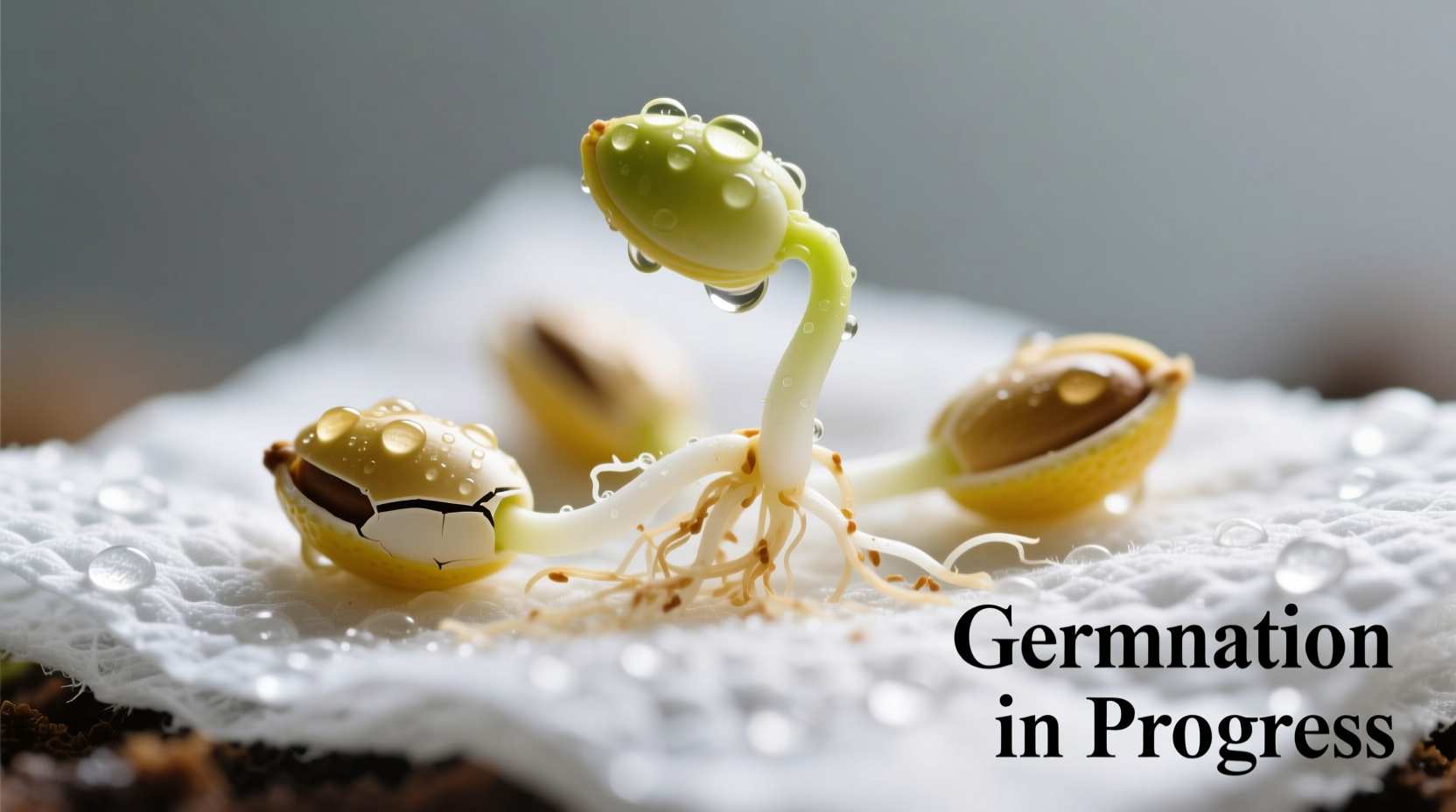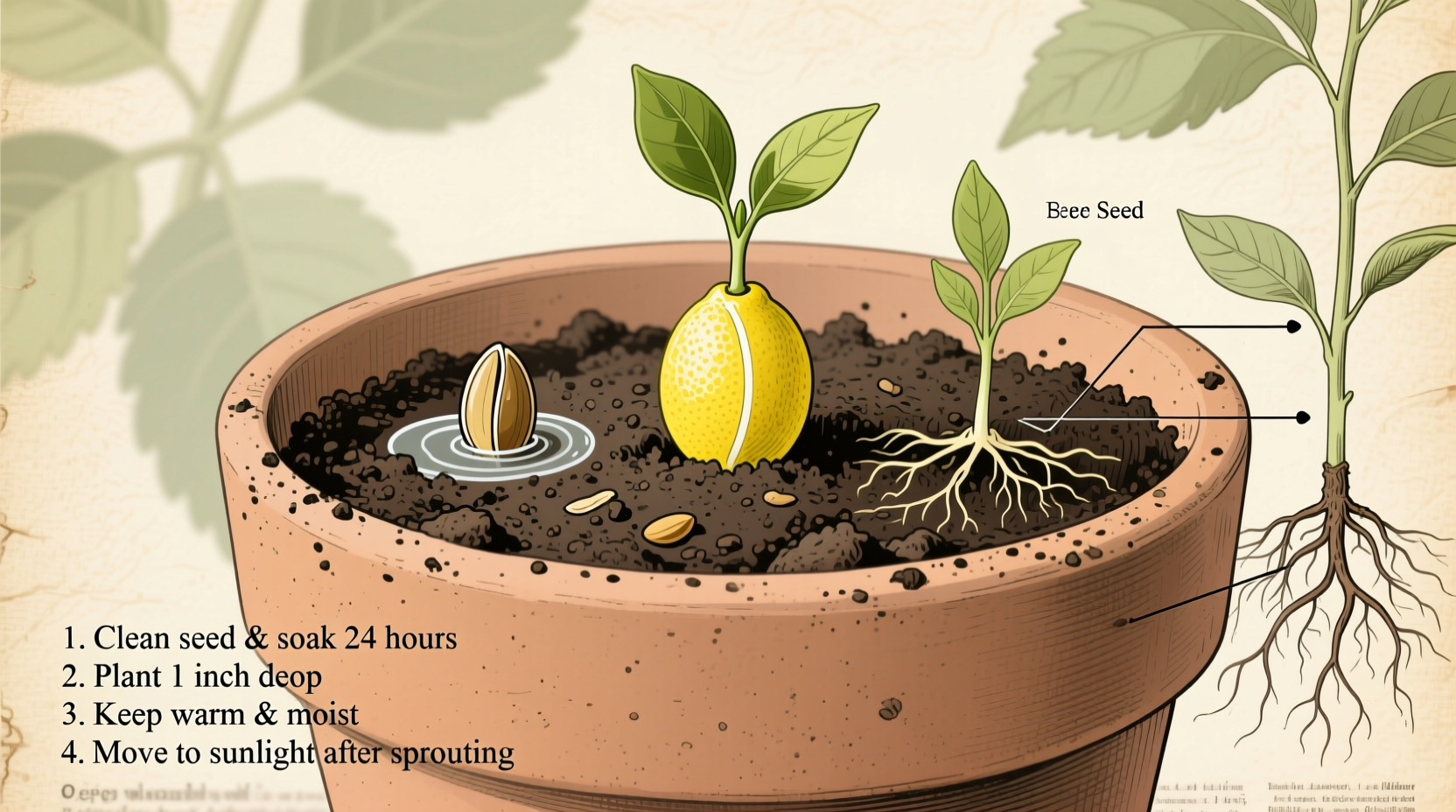Understanding Lemon Seed Growing Realities
Before planting that grocery store lemon seed, understand what you're undertaking. According to the University of Georgia Cooperative Extension, citrus trees grown from seed develop extensive root systems but take significantly longer to fruit than grafted varieties. The USDA Agricultural Research Service confirms that seed-grown lemon trees typically require 7-15 years to produce fruit, compared to 2-5 years for grafted trees.
Why attempt this project then? Growing lemon from seed offers educational value, serves as an engaging gardening project, and creates potential rootstock for future grafting. Many home gardeners enjoy the process regardless of fruiting outcomes.
| Growth Method | Time to Fruit | Fruit Quality | Tree Size |
|---|---|---|---|
| Seed-Grown Trees | 7-15 years | Variable, often inferior | Large (15-20 ft) |
| Grafted Trees | 2-5 years | True to parent variety | Manageable (6-10 ft) |
Selecting and Preparing Quality Seeds
Not all lemon seeds will germinate successfully. Choose seeds from organic, untreated lemons whenever possible, as conventional grocery store lemons often come from trees treated with growth inhibitors. The University of California Agriculture and Natural Resources recommends selecting plump, fully developed seeds from ripe fruit.
Follow these preparation steps:
- Remove seeds immediately after eating the lemon
- Rinse thoroughly to remove all pulp
- Soak in room-temperature water for 24 hours
- Plant while still moist (drying kills viability)

Effective Germination Methods
Two proven techniques work best for how to germinate lemon seeds successfully:
Paper Towel Method (Recommended)
- Moisten paper towel (not dripping wet)
- Place seeds 2 inches apart on towel
- Fold towel over seeds
- Place in sealed plastic bag
- Store in warm location (70-80°F/21-27°C)
- Check weekly for sprouting (2-6 weeks)
Direct Soil Planting
Plant seeds 1/2 inch deep in moist seed starting mix. Maintain consistent warmth and moisture. This method has lower success rates but skips transplanting.
Caring for Young Lemon Seedlings
Once your seed sprouts reach 1-2 inches, transplant to small pots with well-draining citrus-specific soil. The Florida Department of Agriculture notes that young citrus seedlings require:
- 6-8 hours of direct sunlight daily
- Soil that dries slightly between waterings
- Monthly balanced citrus fertilizer after first true leaves appear
- Protection from temperatures below 50°F (10°C)
Avoid common beginner mistakes: overwatering (causes root rot), insufficient light (creates leggy growth), and using regular garden soil (retains too much moisture).
Long-Term Lemon Tree Development Timeline
Understanding the realistic growth stages prevents disappointment. Based on data from the Royal Horticultural Society, here's what to expect:
| Time Period | Development Stage | Care Focus |
|---|---|---|
| 0-6 months | Seedling establishment | Light, consistent moisture |
| 6-18 months | Rapid vegetative growth | Fertilization, potting up |
| 2-5 years | Structural development | Pruning, training |
| 5-15+ years | Potential flowering/fruiting | Pollination, fruit support |
When Growing from Seed Makes Sense (Context Boundaries)
Growing lemon from seed suits specific situations:
- Educational projects for children
- Creating rootstock for future grafting
- Gardeners with patience for long-term projects
- Regions with ideal citrus-growing conditions
Avoid seed growing if you:
- Want fruit quickly
- Expect identical fruit to the parent lemon
- Live in marginal citrus climates
- Have limited gardening space
Troubleshooting Common Lemon Seedling Problems
Address these frequent issues promptly:
Yellowing Leaves
Usually indicates overwatering or nutrient deficiency. Allow soil to dry slightly between waterings and apply balanced citrus fertilizer.
Slow Growth
Check for insufficient light (needs 6+ hours direct sun), poor soil drainage, or inadequate nutrients. Consider supplemental grow lights during winter months.
Pest Infestations
Spider mites and aphids commonly attack young citrus. Treat with insecticidal soap or neem oil, applied according to label instructions.
Setting Realistic Expectations for Fruit Production
Most seed-grown lemon trees never produce commercially viable fruit. The University of California's Citrus Research Center explains that genetic variation means your tree's fruit may be smaller, more acidic, or have thicker rinds than the parent fruit. Some never fruit at all without proper environmental triggers.
For those determined to harvest lemons, consider grafting a known variety onto your mature seedling after 2-3 years of growth. This combines your established root system with a proven fruiting variety.











 浙公网安备
33010002000092号
浙公网安备
33010002000092号 浙B2-20120091-4
浙B2-20120091-4